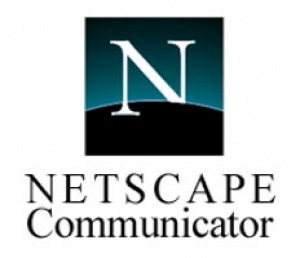
Tom Drapeau, the director of Netscape inside AOL announced on the Netscape blog that support for the recently released Netscape Navigator 9 and all of Netscape's browsers back to version 1.0, will end because it was unable to gain market share and a low number of users that continues to dwindle. Drapeau noted, "AOL's focus on transitioning to an ad-supported web business leaves little room for the size of investment needed to get the Netscape browser to a point many of its fans expect it to be," and that "the success the Mozilla Foundation has had in developing critically-acclaimed products, we feel it's the right time to end development of Netscape branded browsers, hand the reins fully to Mozilla and encourage Netscape users to adopt Firefox."
Netscape's origins lie at the National Center for Supercomputing Applications at University of Illinois at Urbana-Champaign where Netscape's co-founders, Marc Andreessen and Eric Bina wrote their first copy of NCSA Moasic which became the first popular web browser and opened up the web for the first time to the general public and started the rise of the Internet in everyday life.
Andreessen along with Jim Clark, the founder of Sillcon Graphics, started the Moasic Communications Corporation and released their first product Moasic Netscape 0.9 in October 1994. A month later the company became the name it is today, the Netscape Communications Corporation to avoid legal problems from NCSA. A year later later, had a successful IPO on August 9, 1995 and the stock closed the day at $75.
Netscape's early success and virtual monopoly of the browser market was short-lived however as Microsoft viewed Netscape's idea of a consistent browser across various operating systems a threat and quickly began development of it's own browser, Internet Explorer.
This competition between Netscape and Microsoft became known as the browser wars, where both companies tried to out do each other with their increasingly unstable browsers including: new features that did not always work, not providing bug fixes, deviating from Web standards (including the infamous
